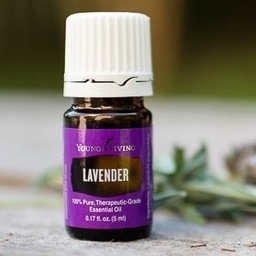 Essential oils have been around a very long time, but not everyone knows what the benefits are or if they are truly safe to use in pregnancy and labor. Today's post will hopefully give you some helpful information so that you can begin to do some of your own research. ***A quick disclaimer: I do not hold any medical credentials. Any and all information I provide in this blog post is my personal opinion based on my own experience with oils and study on the safe usage of essential oils in labor. I strongly encourage all women to do their own research and learn how oils might benefit them personally, but ALWAYS discuss with your healthcare provider before attempting to use them in labor and make sure that your place of birth allows you to bring them, use them, or diffuse as well. (I have had several clients use them in the hospital, and each time the medical staff was very pleased to enjoy these aromas in the room, but always ask permission first!). Equally important is the quality of the oil you are using. I only recommend using 100% pure, therapeutic grade oils. (This is what I use and why.) Yes, you will pay a little more, but it's worth it to have the quality and know the integrity of the oil you are using! I also recommend diffusing the oils over applying topically to the body. If you choose to apply topically, it is very important to dilute as instructed, and again, be sure you have permission from your provider and have done your own research. There are some oils that are NOT safe in pregnancy, in labor, while nursing, etc. so you must educate yourself. Another very important thing: Please make sure you test the oils on your skin BEFORE labor to be sure that you do not have any kind of adverse skin reaction. Lastly, if anyone has applied oils to your chest during labor and you are planning on doing skin to skin after baby is born, wipe those areas thoroughly so as not to cause a reaction in baby.*** Now...for the fun part! What are the best oils to have on hand in labor? Here are my top 5 MUST haves! LAVENDER Lavender is known for it's versatility and calming effect. It can soothe anxiety, ease stress and tension, promote calm and tranquility and lessen the perception of pain. It has a clean and fresh scent. PEPPERMINT Peppermint is excellent for nausea or vomiting. If a mom is feeling nauseous, particularly in transition, her partner or doula can apply a few drops to a washcloth for her to inhale during or between contractions for relief. It can also be put on a warm compress and applied to mom's lower back if she's experiencing back labor. CLARY SAGE Clary sage is another very useful and versatile oil, promoting calm and relaxation, easing pain perception, keeping labor moving, easing muscle spasms, and promoting blood pressure health in the laboring mom. It is great for afterbirth pains as well! HELICHRYSUM Helichrysum is a great oil for soothing the discomforts of contractions. It promotes peace and calm, and has been known to ease stress and tension. WILD ORANGE Wild orange is calming, invigorating and inspiring. It is great for boosting energy (excellent to breathe in before pushing!). A quick word about oils for after baby is born (again I recommend diffusing only). There are two blends that I love absolutely love. The first is Peace and Calming and the second is Gentle Baby. Lavender as a single oil is wonderful too and later on can be diluted and used with a carrier oil (such as coconut oil) for diaper rash and many other things! If you are interested in purchasing any oils, I would love to help you. Contact me at [email protected] with any questions you may have and I would be glad to assist you!  The Happi Doula isn't one to shy away from any topic having to do with womanhood or motherhood, and this topic is no different. Because, let's face it. The whole reason we are having this conversation in the first place is because of sex. And I believe it's an important conversation to have, especially if you are a new mom-to-be. It's common that you and your spouse don't know what to expect in the bedroom after baby arrives. Once your doctor or midwife gives you the green light (at about six weeks postpartum), you may have some fears and concerns about what exactly that will be like. So, I encourage you to keep reading. Sexual intimacy is a very important aspect of the marriage relationship and one that needs tending to. Dad will likely be ready for you to get your pre-pregnancy "mojo" back, and while you're likely to be ready too, it may not be as easy as that. Because, let's face it. Motherhood is hard. Parenting is exhausting. And caring for a newborn is a demanding, 24/7 job, especially in those early weeks. And then there are these factors: All-nighters. No time to shower. Feeling less than sexy. Or interested. Spit-up. Exhaustion. Leaking breasts. Crying. (I'm not just talking about the baby.) Did I mention exhaustion? You may still be sore. Everywhere. Exhaustion. Feeling self-conscious. (Dad, this is where encouraging her and reminding her how beautiful she is to you is really important!) Furthermore, for many new moms, the nurturing instinct is so strong that all she can focus on in the first months following the birth of baby is caring for his/her needs and survival. And, if your baby is in the bedroom with you and your husband for feedings and diaper changes, then every peep and squeak can kill the mood. Quickly. This is a challenging time of transition for both of you. The mental and physical exhaustion of caring for a newborn (especially if this is the first baby) can really take a toll on both of you. Dad, you may worry that she won't ever want sex again, and mom, if you had a cesarean, or any tearing or stitches or trauma during the birth of your baby, you may think things will never be the same "down there" again. I can assure you, they will. These things take time. (Also- let me put in a quick plug for doing those Kegel exercises during pregnancy and after delivery. These really help healing, toning and strengthening the pelvic floor!) So let's talk about what you can expect and how you can help ease the transition to sexual intimacy. 1. I know this may be obvious, but I'll say it anyway. Please make sure you wait long enough to get the go-ahead from your care provider before attempting intercourse. This is really important as you can actually do further "damage" or prolong the healing process. 2. Take time to talk about your needs and feelings beforehand. This goes for both of you. Express your concerns and be sure to really listen to each other. (P.S. Men, remember she needs emotional connection with you just as much as you want physical connection with her. Talking is really important to her.) 3. Do not rush. Take your time and remember it's been a while! If you hurry (QUICK! Before baby wakes up!) you may regret that later and it might end up being a less-than-pleasant experience. If you are nursing or bottle feeding, do the feeding first and then put baby to bed. Change his or her diaper and buy yourself at least a little bit of time! 4. Breastfeeding is not birth control. Just FYI. :) 5. LUBRICATION. Use a good one. No explanation needed. Just trust me on this one. 6. Be present. I know this is difficult, especially for mom. But try to stay in the moment and clear your mind of everything else and enjoy this much needed time with your spouse. 7. If something hurts or is uncomfortable, communicate that. And then get creative. (You were probably already having to do this as your belly grew in pregnancy!). Comfort is key. 8. It may not feel the same as before. That's normal and will improve over time. And finally.... 9. If it's not great this first time, try again (when you're ready!). It will get better. I promise. Thanks for reading! ~Happi |
AuthorHappi loves serving families in the Northwest Suburbs of Chicago as a labor doula and childbirth educator. When she's not at a birth, she loves spending time at home with her loving husband and homeschooling her sons. She also finds great joy in serving the Lord at her church and teaching children about the love of Jesus! Archives
July 2024
Categories
All
|


 RSS Feed
RSS Feed